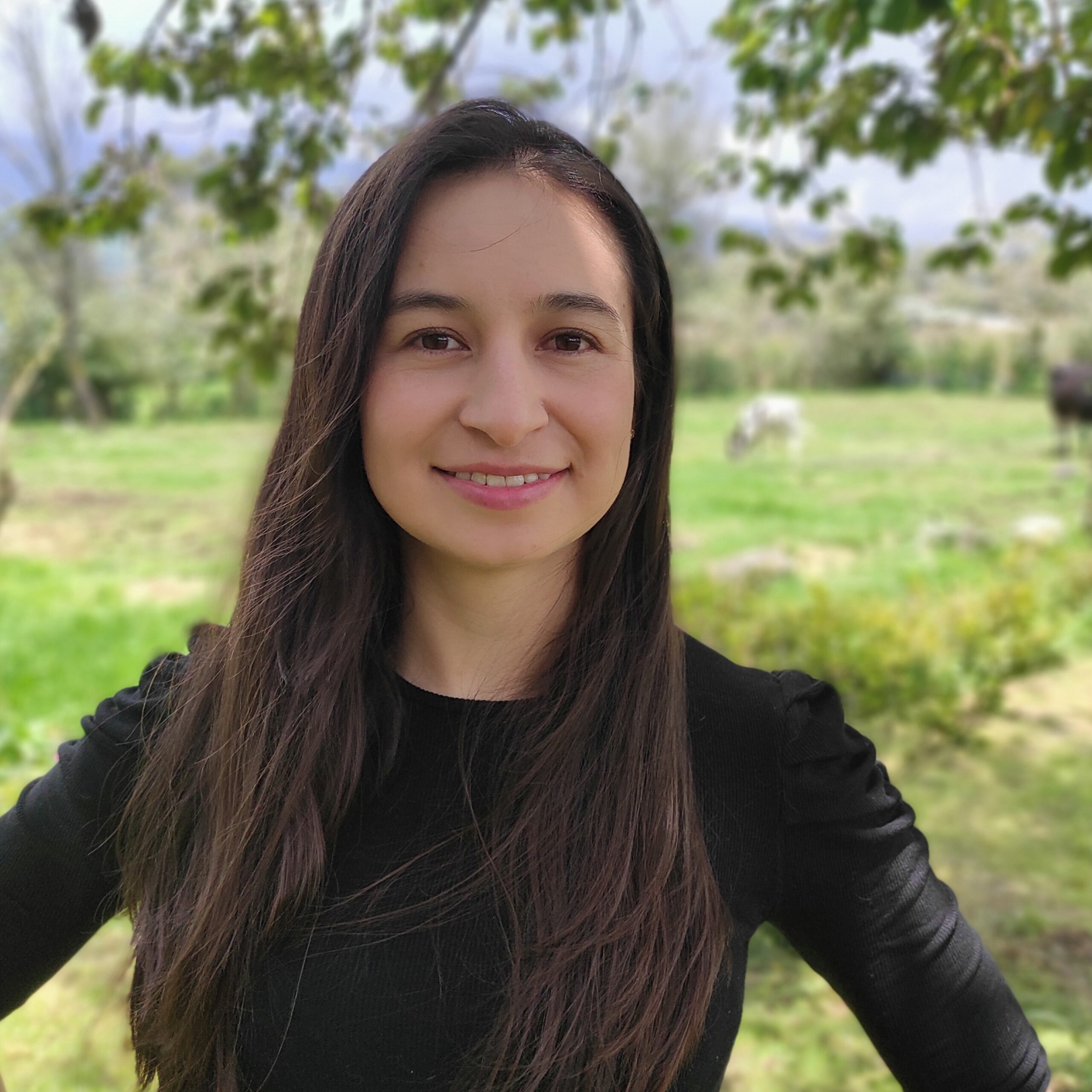Born in Quito, Ecuador • Birth year 1990 • Studied Mathematical Engineering at Escuela Politécnica Nacional in Ecuador • Highest Degree Ph.D. in Mathematical Modelling at Universidad de Chile • Lives in Quito, Ecuador
As a child, I did not dream of being a mathematician or a scientist; there was a total absence of that role model in my environment. My parents worked very hard so that my brothers and I could attend university. We would be the first generation to obtain a Bachelor’s degree. Living in the countryside and being surrounded by animals shaped me to study agronomy or veterinary medicine. However, my ability in mathematics motivated me to explore a career more related to numbers and abstract thinking.
Since I was a primary school kid, I have enjoyed math homework. I liked to think and invent my own problems. In high school, I was more interested in verbal math problems. I liked the process of “translating” these problems into equations. Despite my taste for mathematics, it was not until my last year of high school that I discovered a career opportunity in mathematics while reading the academic offer of a university. I did not know anyone who studied that subject or that there were jobs for mathematicians. My naive idea was that surely a mathematician knows everything about mathematics, and that caught my attention. One of the first options I considered was studying math to be a good math teacher. During my last year of high school I liked teaching math to my classmates. I was motivated by the idea of transmitting knowledge and helping others to look at problems more naturally.
Everything made sense and brought me back to what I enjoyed as a child: real-life problems translated into equations.
Once I enrolled in university, studying mathematics to be a teacher no longer seemed like a good idea. I realized that high school teachers study pedagogy and that was far from my personal interests. After exploring other options within the same university, I hesitated between chemical engineering and mathematical engineering; both attracted me a lot. The chemistry degree had a high component of physics, and I did not like it enough to study it for so long. I decided to follow mathematical engineering, even with many doubts about its usefulness. It was a kind of blind confidence that I would enjoy it very much.
University was challenging; it was a world that I mostly traveled blindly. The most abstract courses were meaningless to me because although they were fascinating and beautiful on their own, I did not know how they could be used in work life. It was only at the end of my studies that everything became a little clearer. When I did my undergraduate thesis, I connected the theory that I had studied with the world of applications. I understood why we need to seek solutions, guarantee their existence, and analyze their regularity. Everything made sense and brought me back to what I enjoyed as a child: real-life problems translated into equations.
I always had a particular interest in photography, but discovering the physical and mathematical models behind acquisition, reconstruction, and post-processing was something I did not want to stop learning about.
I worked on my undergraduate thesis with Juan Carlos De los Reyes, whom I thank for introducing me to the world of images. I always had a particular interest in photography, but discovering the physical and mathematical models behind acquisition, reconstruction, and post-processing was something I did not want to stop learning about. Since I had just found my passion, I opted for a Ph.D. program to learn more about it. I leaned towards the area of inverse problems, and in particular the modeling and reconstruction of images related to biomedicine. I most enjoyed simulating and visualizing ideas after writing them down on paper.
This Ph.D. brought me extraordinary experiences such as visiting new places, meeting collaborators from other countries, having an excellent scientific community, just to mention a few. However, there were also challenges along my way: living away from my family, adapting to a new culture, not speaking in my native language, and dealing with frustrations and insecurities when things did not go as expected.
I wish that more and more women feel empowered to study engineering or science and do not rule it out as an option based on stereotypes.
A year ago, I finished my Ph.D. in mathematical modeling in Chile. After some post-PhD experiences as a research associate at the academy in Ecuador, my native country, I will start a postdoc at Millennium Nucleus for Applied Control and Inverse Problems in Chile this month. Although I enjoy teaching, I am happy for this new position dedicated more exclusively to do research.
As a woman, I have been able to feel equal within my workgroups. I was always the only woman, but that has never made me feel less worth than any of my male peers. I wish that more and more women feel empowered to study engineering or science and do not rule it out as an option based on stereotypes. Fortunately, nowadays, we can meet more women, we can look at them as our role models, and we can be role models for the next generations.

